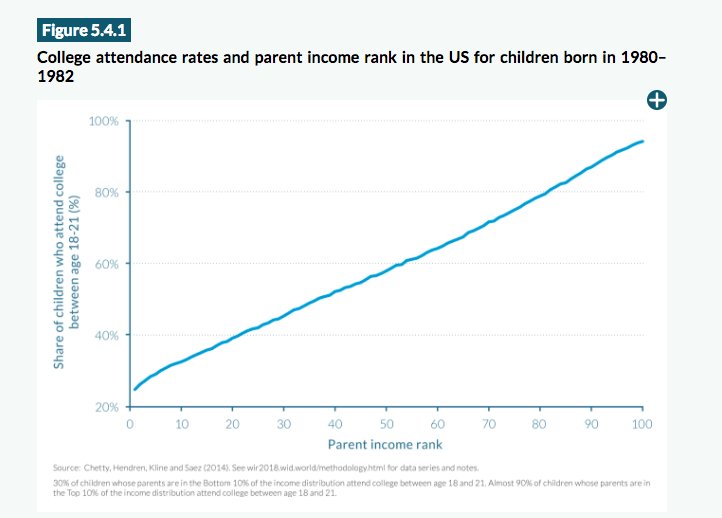I’ve joined a new aristocracy now, even if we still call ourselves meritocratic winners. If you are a typical reader of The Atlantic, you may well be a member too. (And if you’re not a member, my hope is that you will find the story of this new class even more interesting—if also more alarming.) To be sure, there is a lot to admire about my new group, which I’ll call—for reasons you’ll soon see—the 9.9 percent. We’ve dropped the old dress codes, put our faith in facts, and are (somewhat) more varied in skin tone and ethnicity. People like me, who have waning memories of life in an earlier ruling caste, are the exception, not the rule.
By any sociological or financial measure, it’s good to be us. It’s even better to be our kids. In our health, family life, friendship networks, and level of education, not to mention money, we are crushing the competition below. But we do have a blind spot, and it is located right in the center of the mirror: We seem to be the last to notice just how rapidly we’ve morphed, or what we’ve morphed into.
The meritocratic class has mastered the old trick of consolidating wealth and passing privilege along at the expense of other people’s children. We are not innocent bystanders to the growing concentration of wealth in our time. We are the principal accomplices in a process that is slowly strangling the economy, destabilizing American politics, and eroding democracy. Our delusions of merit now prevent us from recognizing the nature of the problem that our emergence as a class represents. We tend to think that the victims of our success are just the people excluded from the club. But history shows quite clearly that, in the kind of game we’re playing, everybody loses badly in the end.

